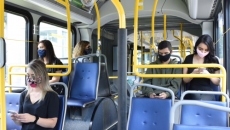Canadians should carefully weigh any future decisions on taking foreign trips even though the federal government has lifted a global advisory asking them to avoid non-essential travel, health officials cautioned Friday.
Dr. Theresa Tam, Canada's chief public health officer, said the government would be providing more specific information about the severity of COVID-19 in various countries to help Canadians decide where they should consider travelling.
"The pandemic is very much alive. There are definitely still risks involved in travel," Tam said Friday. She said it was too soon for the government to give a "blanket" recommendation on all travel, but said being fully vaccinated and assessing the level of the pandemic in any potential destination are key.
"Now is not the time to just freely go wherever."
The government announced Thursday that it was lifting the global advisory asking Canadians to avoid non-essential travel outside the country, but it was continuing to advise against travel on cruise ships.
The global travel advisory was put in place in March 2020 as the COVID-19 pandemic hit.
Dr. Howard Njoo, the deputy chief public health officer, said Friday that Canadians should ask themselves a series of questions before they plan to travel abroad.
Njoo urged Canadians assess the "epidemiological situation" of COVID-19 in any potential travel destination "because there is great variation between different countries and even within countries, as we've seen here in Canada."
They should also look at the level of vaccination rates in those country "because that's an indication of what community transmission in that region may be."
Canadian travellers should also ask themselves what they actually want to do when they get to another country. "For example, if you're going to go on solitary nature hikes, that's one thing. But if you're thinking of going on a cruise with a lot of people in an enclosed space, that's another thing," said Njoo.
Canadians should also weigh the "culture for individual protection measures" in where they are thinking of travelling, such as whether masks are commonly worn, or not, he said.
"We know that the situation is not the same in all parts of the world. There are regions in the world that are still suffering from the severe consequences of COVID-19," he said.
The government of Canada's website now shows advisories for each destination country, as it did prior to the pandemic.
It also urges Canadians to ensure they are fully vaccinated against the novel coronavirus before travelling abroad, and to stay informed of the COVID-19 situation at their destination.
The move comes as the federal government announced it had reached an agreement with the provinces on a new national vaccine passport for domestic and international travel.
Prime Minister Justin Trudeau said Thursday that provinces and territories have agreed to adjust their own vaccine passports to give them the same look, feel and security measures based on the international standard for so-called Smart health cards.
Several have already started distributing proof-of-vaccination documents, including Newfoundland and Labrador, Nova Scotia, Quebec, Ontario, Nunavut, Saskatchewan, Northwest Territories and Yukon.
Canada opened its borders last month to non-essential international travellers who have received both doses of a Health Canada-approved COVID-19 vaccine, and to fully vaccinated travellers from the United States in August.
The U.S. government recently announced that its land borders will reopen to non-essential Canadian travellers on Nov. 8.






